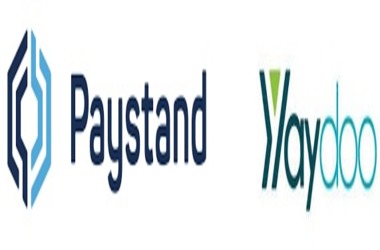
Both businesses provide an assortment of technology-aided B2B products for automating operations, payment, and bill collecting. Both firms have established effective B2B DeFi payment systems that are suitable to enterprises on both ends of the continent, so the purchase makes sense. Currently, as per the official release, they want to integrate their services through an unified, open, and safe international payment system.
PayStand CEO Jeremy Almond said “The merged firm will be among the first globally major B2B blockchain networks. The resultant firm will have handled more than $5billion in payments, recruited 300 new workers, and developed a system of more than 500,000 linked companies, the biggest platform of almost any commercial B2B blockchain across the globe.”
When it comes to emerging areas like LATAM, Almond outlines how on-chain DeFi-enabled B2B payment networks may “unlock dramatic working capital efficiencies” while also expanding access to financial services. Working capital is more crucial and increasingly difficult to come by in the United States due to continuous inflation and increased borrowing rates. CFOs are always on the lookout for more money, so it’s no surprise that they’re turning to technology in order to streamline the cash cycle, which affects the company’s ability to make important payments.
As per Deloitte, about 50% of the $18 trillion in business payments in the United States are still made by paper checks, and the great majority of the remainder are still conducted via a physical or pre-Internet method. Automation of Web3 capabilities spanning AR, AP, expenditure, sourcing, and settlements on a single platform provides organizations with enormous cash benefits, hence assisting the US B2B payment industry to achieve a predicted CAGR of more than 8% in the coming five years.
As per Goldman Sachs, the worldwide B2B payments industry was worth $940 billion in 2021, with AR/AP software contributing for $130 billion of that total. This is a substantial number, but it only includes firms who have actually used software or digital AR/AP systems. Just under five percent of businesses in LATAM are digitally connected, indicating that the B2B payments potential in Mexico and other developing countries presents a far broader opportunities.
Sergio Almaguer, CEO of Yaydoo, said “Via their AR/AP software landscapes, Yaydoo and Paystand have facilitated B2B payment systems. The time has come moment to form an alliance and develop solutions that will streamline and digitalize commerce between the United States and Mexico, unleashing a set of possibilities for automating distribution chain financing among one of the busiest trade routes.”
Almaguer said “Linking the United States and Mexico is merely the beginning. We are well aware that every nation has its unique payables and receivables systems that enable domestic B2B payments. We aim to develop long-term connections with all these organizations who are already familiar with their industry in a bid to create a system that encompasses the entire region.”
To this end, he will remain in charge of the merged company’s growth throughout Latin America.
Greater synergies, such as entry to emerging markets, product lines, distribution methods, and talent pools, are anticipated to result from the merged organization. In the Americas, the purchase will enable Paystand and Yaydoo goods to be offered via current channels and connectivity allies from the United States to Canada and from Mexico to Colombia.
Presently, the firms have worldwide integrations with Oracle NetSuite, Sage Intacct, Xero, and CONTPAQi in Mexico, giving them access to the region’s biggest and most advanced mid-market potential. There exists a substantial market potential for Paystand and Yaydoo. With its size, the merged business might be on track for an initial public offering (IPO) in the upcoming two years, restoring IPO funding availability to the recession-plagued technology industry.
